Eradicating poverty in all its forms remains one of the greatest challenges facing humanity. While the number of people living in extreme poverty dropped by more than half between 1990 and 2015, too many are still struggling for the most basic human needs.
As of 2015, about 736 million people still lived on less than US$1.90 a day; many lack food, clean drinking water and sanitation. Rapid growth in countries such as China and India has lifted millions out of poverty, but progress has been uneven. Women are more likely to be poor than men because they have less paid work, education, and own less property.
Progress has also been limited in other regions, such as South Asia and sub-Saharan Africa, which account for 80 percent of those living in extreme poverty. New threats brought on by climate change, conflict and food insecurity, mean even more work is needed to bring people out of poverty.
The SDGs are a bold commitment to finish what we started, and end poverty in all forms and dimensions by 2030. This involves targeting the most vulnerable, increasing basic resources and services, and supporting communities affected by conflict and climate-related disasters.
Work carried out at the Samarkand Institute of Economics and Service within the framework of SDG 1 “No Poverty”
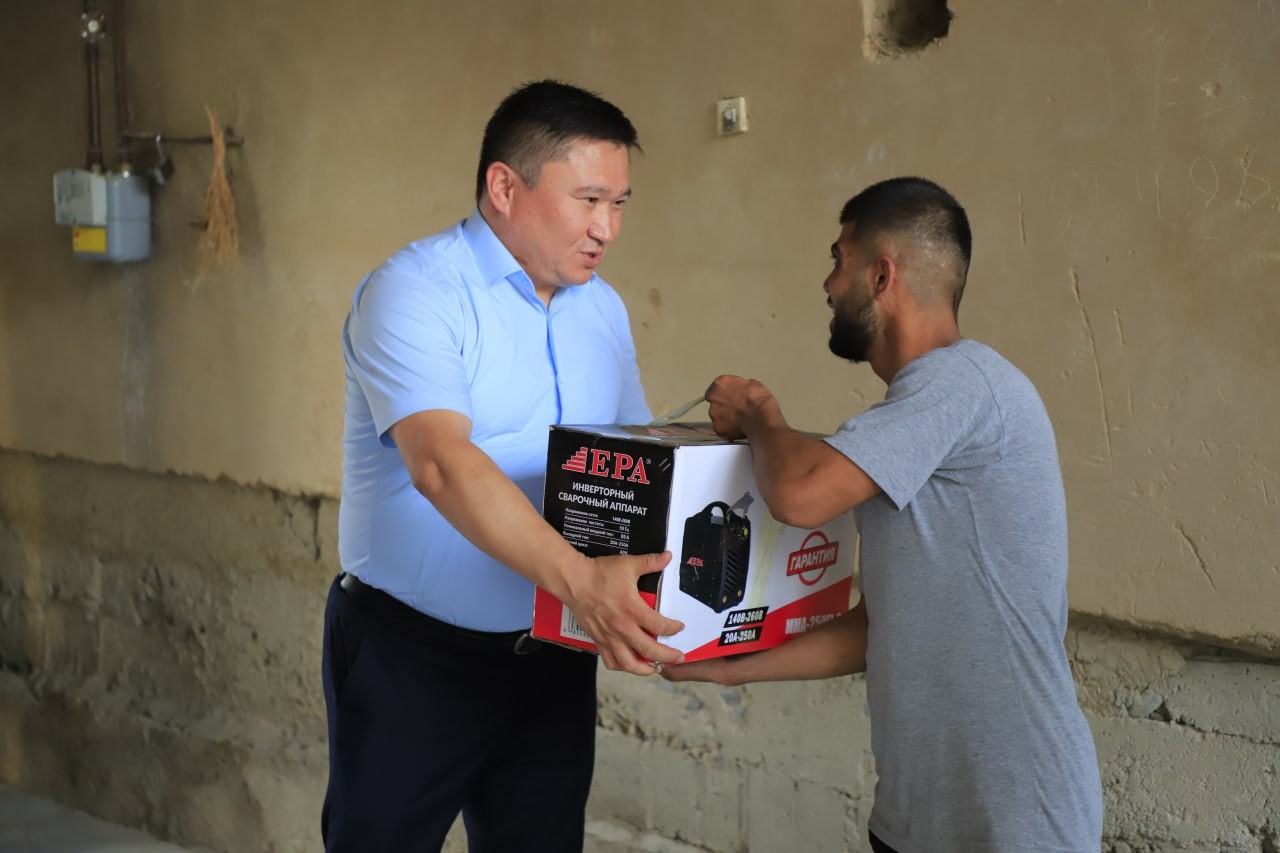
Responsible persons study the living conditions and employment processes of underprivileged youth in the neighborhoods near the institute, providing them with necessary assistance. In particular, the institute provided support to low-income families, in 2023 as follows:
- 10 valuable gifts were presented;
- 1 youth underwent eye surgery;
- 35,180,000 sum in material assistance was provided.
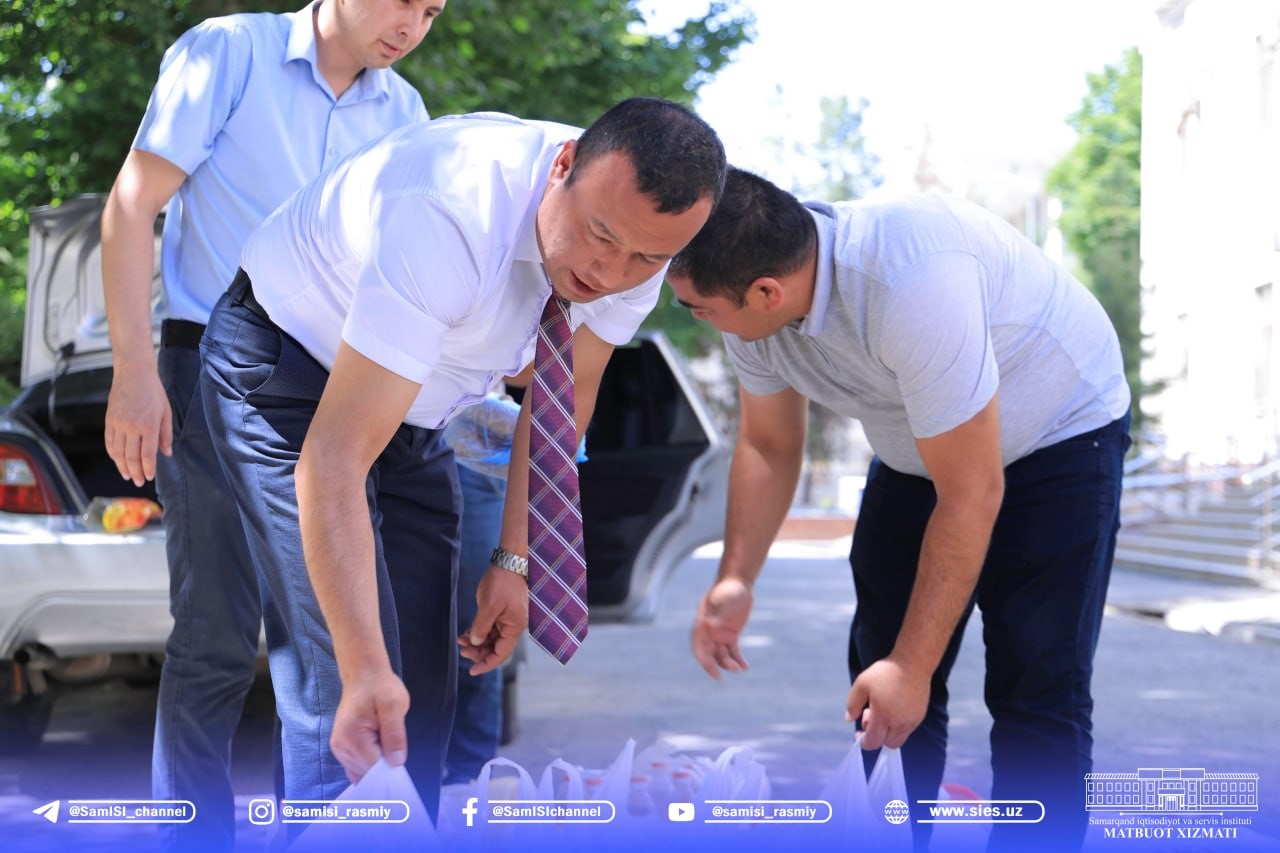
Benefits were granted for the payment of tuition fees for students from low-income and socially vulnerable families studying at SIES. This included:
- 41 female students pursuing a master's degree;
- 222 students listed in the "Yoshlar daftari";
- 7 students listed in the "Temir Daftar".
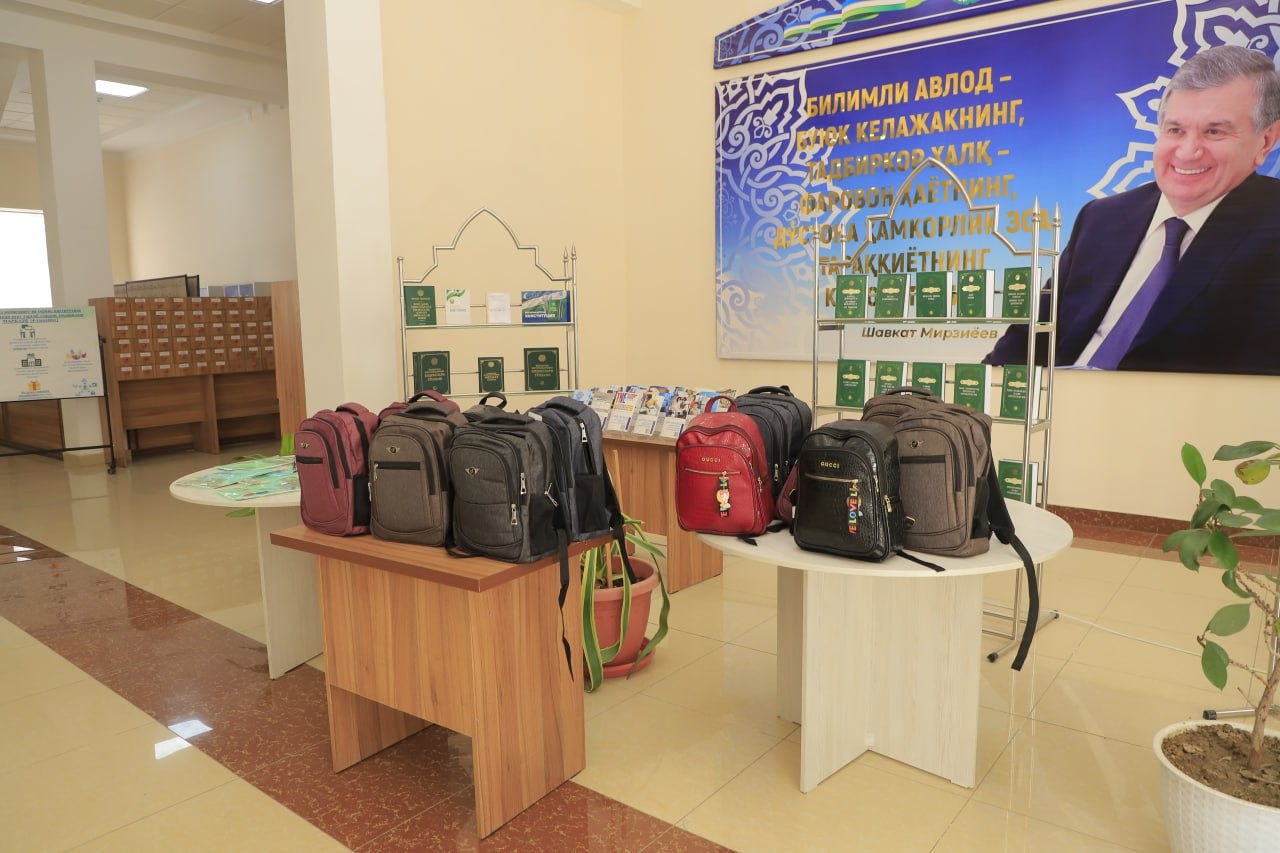
To support employees, the institute has been consistently providing material assistance. Following assistance had done throughout 2023:
- Educational supplies and backpacks were provided for the children of 125 employees;
- Material assistance totaling 428 million sum was allocated to 204 employees;
- Each of the 7 employees of retirement age received a bonus equivalent to one month's salary;
- 25 children from low-income families were sent to summer camps;
- On Eid al-Adha, 22 families in need of social protection living in "Koksaroy" neighborhood of Samarkand received gifts of necessary products for the festive table.
- A trip to the city of Khiva was organized for 30 employees.
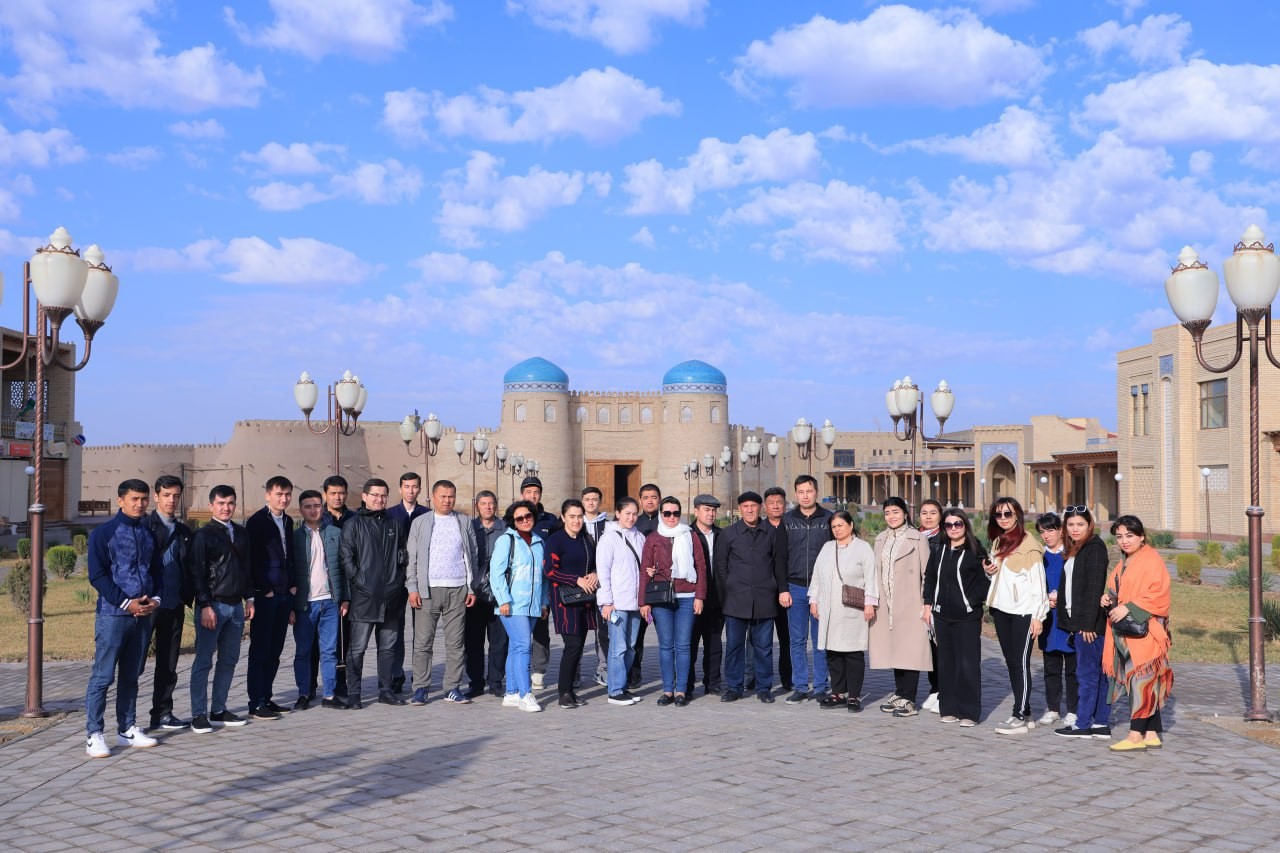
An international scientific and practical conference on " Opportunities for Using Digital and Innovative Technologies in the Development of the Service Sector and Poverty Reduction " was held by the Scientific School of Economics at the Samarkand Institute of Economics and Service. It took place from May 20 to 22, 2023, in collaboration with several universities, including Tambov State University, Tomsk State University’s Institute of Economics and Management, North Caucasus Federal University, St. Petersburg Polytechnic University, Higher School of Economics, Karshi Engineering and Economics Institute, and the "Silk Road" International University of Tourism and Cultural Heritage, as well as the TSUE Samarkand branch.
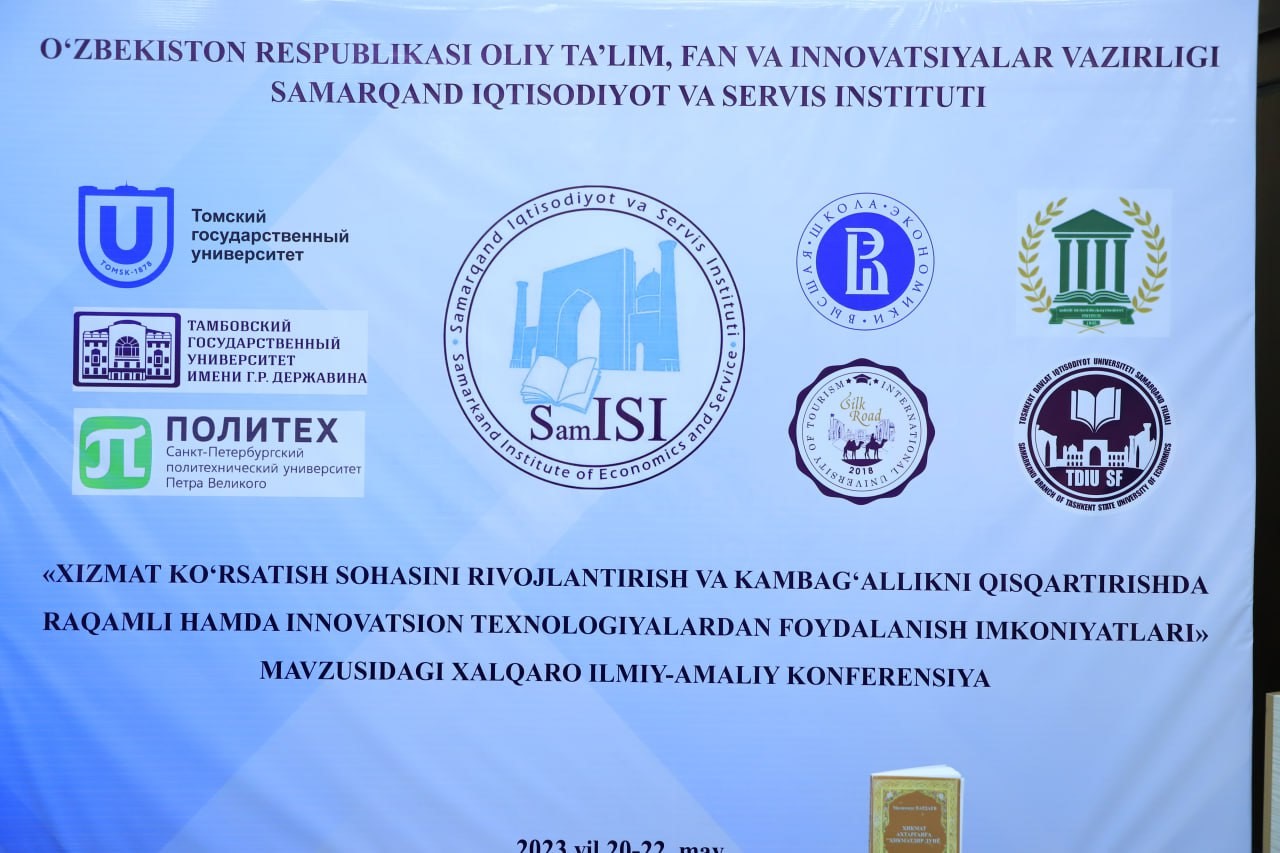
 English
English
 Oʼzbek
Oʼzbek
 Русский
Русский

